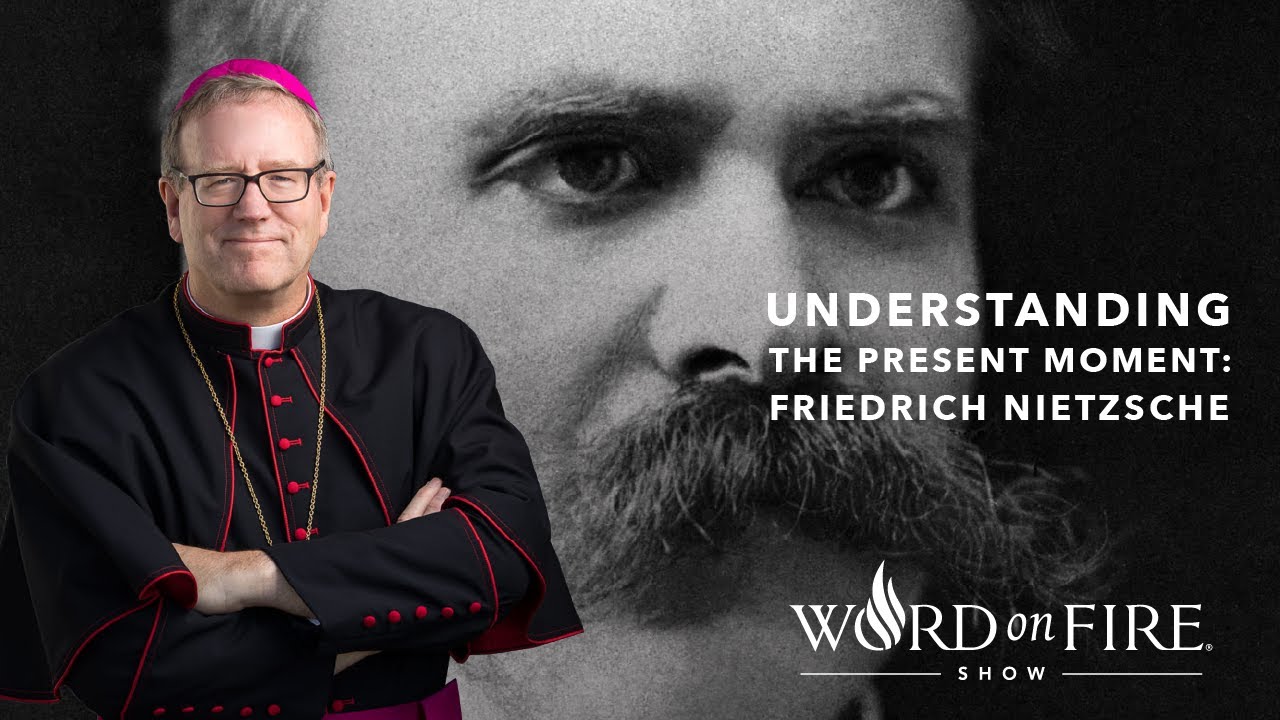The Philosopher Everyone Hates...
Summary
TLDRThis script narrates the misunderstood life of Friedrich Nietzsche, a Prussian philosopher who challenged conventional morality and religion. It explores his tragic personal life, intellectual evolution, and the profound impact of his philosophy, including the concept of the 'Übermensch' and the famous declaration 'God is dead.' Despite his influence, Nietzsche's teachings were often misinterpreted, even by his own family, leading to a legacy that both inspired and perplexed future generations.
Takeaways
- 📚 Friedrich Nietzsche, a German philosopher, is often misunderstood for his philosophical ideas and personal life.
- 👶 Nietzsche was born into a religious family in Prussia, with his father being a Lutheran pastor.
- 💔 He experienced significant trauma in his childhood with the death of his father and brother, which affected his emotional development.
- 🏫 Nietzsche initially pursued theology but later switched to philology, studying ancient languages and becoming a professor.
- 📖 His works, such as 'Thus Spoke Zarathustra,' introduced concepts like the 'Übermensch' and the death of God, which were controversial and misunderstood.
- 🤔 Nietzsche's philosophy emphasizes individualism, self-overcoming, passion, suffering, creating personal values, authenticity, and the eternal recurrence.
- 🚷 His life was marked by personal struggles, including health issues from syphilis, which eventually led to his mental breakdown.
- 💔 After his breakdown, Nietzsche was cared for by his sister, who posthumously misrepresented his work, leading to further misunderstandings.
- 🔍 His writings were misappropriated by the Nazis, who used the term 'Übermensch' to promote their ideology, despite Nietzsche's opposition to anti-Semitism and fascism.
- 🕊️ Nietzsche's ideas have been re-evaluated and appreciated in modern times, particularly in the context of atheism and individualism.
- 🌐 His life and work serve as a cautionary tale about the impact of reality on individuals and the importance of understanding and interpreting philosophical ideas correctly.
Q & A
Who is the main subject of the video script?
-The main subject of the video script is Friedrich Nietzsche, a German philosopher.
What was Nietzsche's early life like?
-Nietzsche's early life was marked by tragedy, including the death of his father and younger brother. He was described as emotionless and mature for his age, likely due to the trauma he experienced.
What significant event in Nietzsche's life led to his questioning of Christianity?
-Nietzsche's questioning of Christianity began when he was studying at the University of Bonn, where he faced personal struggles and conflicts with his professors.
What is the meaning behind Nietzsche's famous phrase 'God is dead'?
-The phrase 'God is dead' from Nietzsche's book 'Thus Spoke Zarathustra' signifies the death of the traditional concept of God and the need for individuals to create their own values and meanings in a world without divine authority.
What are the seven recommendations Nietzsche proposed to become an Übermensch?
-Nietzsche's recommendations to become an Übermensch include embracing individualism, exercising self-overcoming, living with passion, embracing suffering and adversity, creating your own values, being true to yourself, and embracing the concept of Eternal Recurrence.
How did Nietzsche's personal struggles and health issues affect his life and work?
-Nietzsche's personal struggles and health issues, including contracting syphilis, led to a decline in his physical health and forced him to retire from teaching. These experiences influenced his philosophical ideas and writings.
What was the impact of Nietzsche's relationship with Lou Salomé on his life?
-Nietzsche's relationship with Lou Salomé was tumultuous, as both he and his friend Paul Rée fell in love with her. Her rejection of Nietzsche's marriage proposals and the subsequent end of their vacation led to further heartbreak and contributed to his emotional turmoil.
How did Nietzsche's sister, Elizabeth, contribute to the misunderstanding of his work?
-Elizabeth took liberties with Nietzsche's unpublished materials and writings, interpreting them in her own ways and aligning them with her fascist beliefs, which led to a significant misunderstanding and misuse of Nietzsche's philosophy, especially by the Nazis.
What is the significance of the concept of 'Eternal Recurrence' in Nietzsche's philosophy?
-The concept of 'Eternal Recurrence' suggests that one should live their life in such a way that they would be willing to repeat it eternally, emphasizing the importance of authenticity and enjoying every moment.
How did Nietzsche's views on individualism and morality differ from the societal norms of his time?
-Nietzsche criticized the church and established regimes for imposing their values on followers. He believed that true morality comes from within and that individuals should create their own values based on their unique experiences and perspectives.
What are some of the misconceptions about Nietzsche's philosophy that the video script aims to clarify?
-The video script aims to clarify misconceptions such as the misinterpretation of 'God is dead' as a literal statement, the misunderstanding of Nietzsche's views on individualism and morality, and the misuse of his philosophy by the Nazis, which was contrary to his actual beliefs.
Outlines

This section is available to paid users only. Please upgrade to access this part.
Upgrade NowMindmap

This section is available to paid users only. Please upgrade to access this part.
Upgrade NowKeywords

This section is available to paid users only. Please upgrade to access this part.
Upgrade NowHighlights

This section is available to paid users only. Please upgrade to access this part.
Upgrade NowTranscripts

This section is available to paid users only. Please upgrade to access this part.
Upgrade NowBrowse More Related Video

Nietzsche's Theory Of ‘Finding Yourself’: It’s Not About Self-Discovery

Nietzsche: O Homem que Desvendou o Universo (e enlouqueceu)

El Anticristo - Friedrich Nietzsche, breve RESUMEN y ANÁLISIS + link webinar GRATIS lectura rápida

Nietzsche (resumo) | FILOSOFIA

Nietzsche: God Is Dead

Understanding the Present Moment #2 (Friedrich Nietzsche)
5.0 / 5 (0 votes)